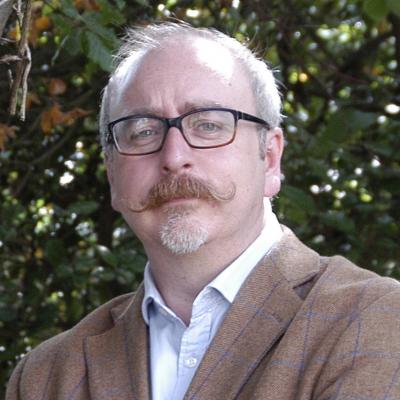Dr Christopher Burton Professor
Organisation: Bangor University
- Improvement Science Fellowship
- 2

About me
Chris is an Improvement Science Fellow and Professor at Bangor University.
He is a senior research fellow with the School of Healthcare Sciences at Bangor University in Wales, where he is working with a team of improvement scientists.
He holds a PhD in health sciences and is interested in how organisations go about improvement work – particularly when it comes to collaborating with patients and the public, and the kinds of pitfalls and successes experienced.
Chris’s work concentrates on the generation and use of evidence in health care, mostly in the field of stroke. He has grown a significant programme of research (approximately £7 million) around stroke nursing and rehabilitation, and his expertise and experience is recognised in appointments to policy groups (Department of Health, National Stroke Strategy), practice (National Stroke Nursing Forum, Founding Member), and research infrastructure roles (OPAN Wales Stroke Research Group, United Kingdom Stroke Research Network, Rehabilitation Clinical Studies Group and Stroke Association).
Current funding supports process evaluations alongside a number of trials of stroke rehabilitation, the first discrete choice experiment of patient preferences for community stroke services, and the first empirical investigation of clinical decision-making at the interface of end of life care in acute stroke. More recently, Chris has actively contributed to the development of Implementation Research at Bangor University, recognised by national stakeholders, including the Health Foundation, as internationally excellent. The collaborative programme of implementation research has grown substantially, and underpins a wide range of knowledge transfer and curriculum developments, including the first Professional Doctorate in Implementation.
Chris hopes the Improvement Science Fellowship will provide opportunities to develop new skills and theoretical insights in improvement science, and to develop specialist expertise around patient and public involvement.
Health care improvement work can encompass anything from infrastructure changes that support improvement, to organisational partnerships or changes to systems and practices. Chris is researching up to 10 improvement projects across the UK, to learn how improvements work, and what is effective in delivering the desired impacts for organisations, staff and patients.
'I’m planning this work with reference to a theory known as ‘the resource based view of the firm’ which sees organisations as a complex mix of resources, including the experience and skills of their staff. I’m interested in how these resources are shaped by improvement work,' says Chris.
'All organisations try to maximise the resources they have to increase their capacity to deliver high-quality services. I’m trying to identify why organisations invest time and energy doing improvement work, and the value it adds to their organisation. By applying tested theory, I’m hoping to discover rational reasons about why improvement projects work,' he explains.
Because patients and the public are central to health care, their involvement is a component of nearly all improvement work. With them, they bring information about experiences, preferences and the consequences of change. Chris thinks that so far improvement science has paid little attention to the role patients and the public play, and understanding more about it would be hugely beneficial to health care improvement.
'I’m going to focus on improvement projects that include patient and public involvement and that may develop very different resources and insights for health organisations. It’s so interesting because patient and public involvement is occurring in so many areas of improvement work, and we’ll find there is an enormous amount of learning we can use to our advantage. It feels like it is a growing field of practice and I think the potential to develop science in this area is enormous.'
Chris aims to learn how patient and public involvement is being conducted, common approaches, successes and failures and the types of benefits it creates.
'I want to capture a rich picture of the influence that their involvement has throughout the interplay of an organisation’s improvement work. Not just how it shapes a project, but the type of peripheral learning and feedback that it generates. I hope to show how tapping into this open resource can add significant value to an organisation’s improvement work, enhance the experience of the people involved in that work, and overall create better outcomes for patients.'
Work with us
We look for talented and passionate individuals as everyone at the Health Foundation has an important role to play.
View current vacanciesThe Q community
Q is an initiative connecting people with improvement expertise across the UK.
Find out more

